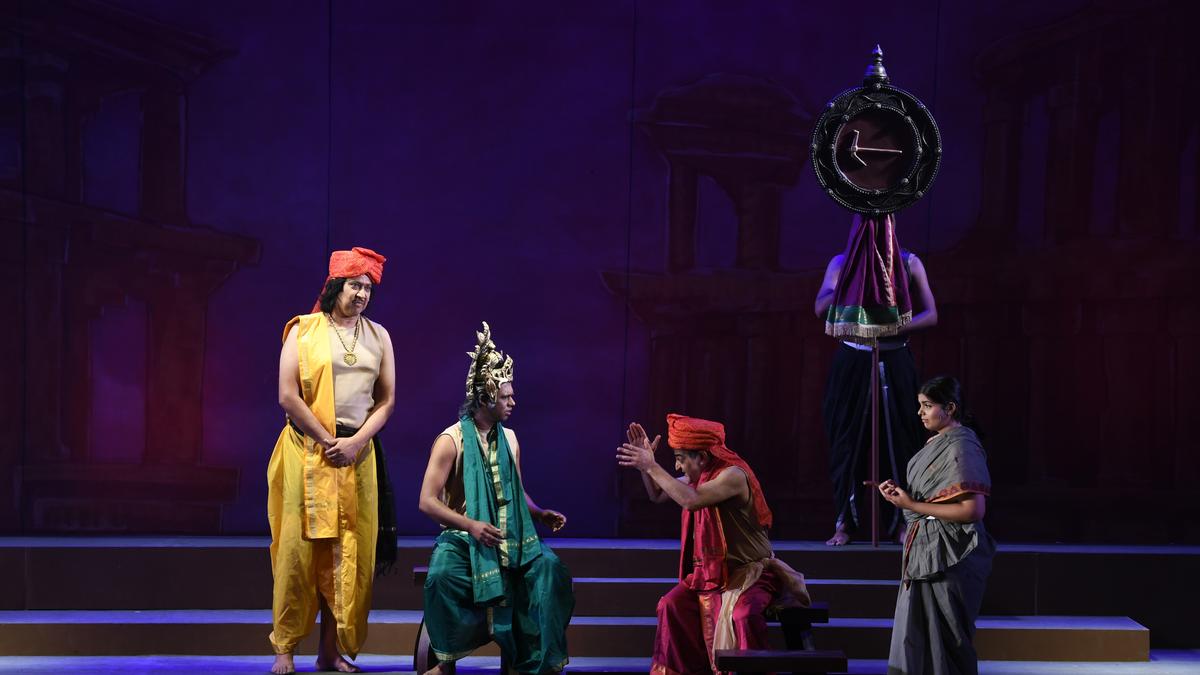“I had said many foolish things about him,” begins Prakash Belawadi, renowned film and theatre actor, writer and director, as he talks about his association with Santeshivara Lingannaiah Bhyrappa, who passed away on September 24, 2025, at the age of 94. Bhyrappa’s Kannada novels such as Vamshavruksha, Nayi Neralu and Tabbaliyu Neenade Manage were made into films (most of which won awards and accolades on the national and international platforms).
Bhyrappa’s Parva – A Tale of War, Peace, Love, Death, God and Man, acclaimed as a modern classic, is a retelling of the Mahabharata through personal reflections of its principal characters. The story is set just before the Kurukshetrawar and begins with the Madra king, Salya and uses monologues (a technique used in theatre) as a literary technique. Parva was adapted into a play by Prakash, who first met the legendary writer, at a seminar.
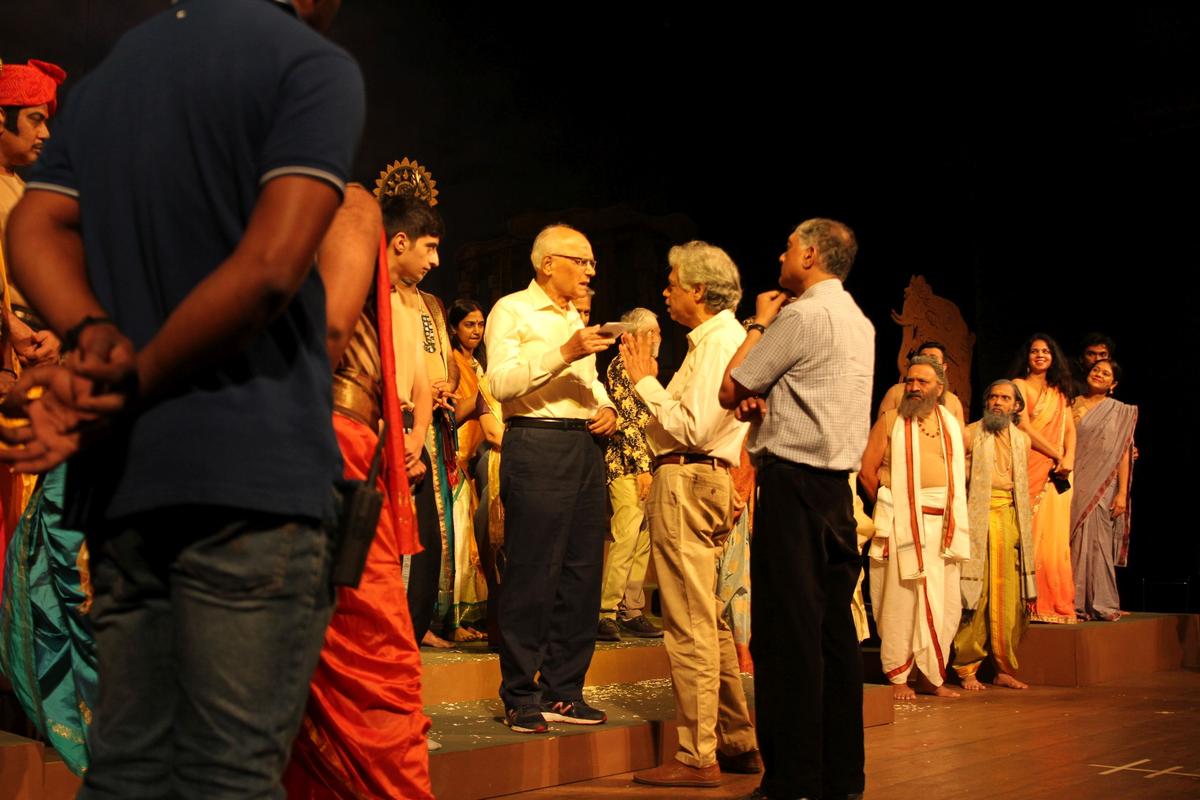
Bhyrappa with Prakash and the cast and crew of Parva
| Photo Credit:
Special Arrangement
a.
“It was sometime before 2009, though I don’t remember the exact year,” says Prakash. “I can hardly call it a formal meeting. What I do remember is sharing the stage with him at the ‘Nudisiri’ event in Moodbidri, where I had to step in as a speaker at the last minute, after the scheduled guest failed to turn up. At the time, however, I was unfamiliar with his writings, as I was still deeply influenced by left-wing ideologies. But, my mother, theatre and film personality Bhargavi Narayan was a huge fan of his works. During my speech, I raised a question about why cinema faced censorship while literature did not. To which, Bhyrappa later responded, saying, ‘If filmmakers too made films responsibly, there would be no need for censorship’.”
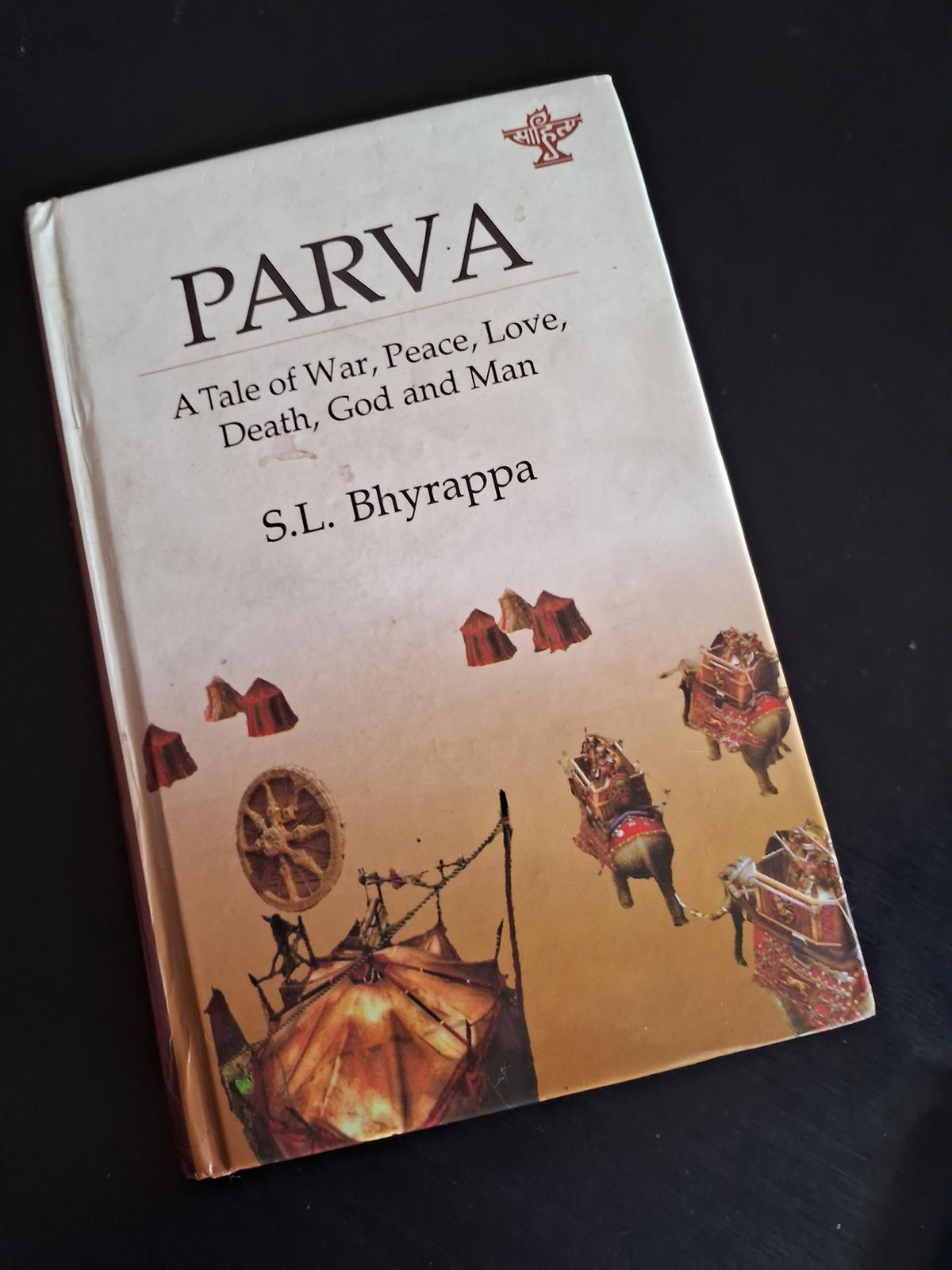
The book cover of the English edition.
| Photo Credit:
Special Arrangement
In 2012, when Prakash happened to read the English version of Parva, he was was amazed that a writer could be so bold. “I got his contact from journalist Vijayamma and reached out to him to seek permission to turn Parva into a play. He wanted to know if I would stage Parva as an all-night play or with each act staged on different days. He also asked, ‘I hope you won’t present Ekalvya and Karna as naxalites or Kunti as a feminist in the play’,” shares Prakash, adding with a laugh that he almost gave up the idea since it was difficult figuring out how to adapt it to stage.
By then, Prakash had read Bhyrappa’s Matadana “only because I had to act in T.N. Seetharam’s serial of the same name. I did not think the book was a great work, but then I read his autobiography, Bhitti, and was stunned by the man, the personality and his life. Then, I watched movies based on his books, Vamshavruksha and Gruhabhanga, and read Nayi Neralu as I had to write a review. In my review, I remember I wrote, Bhyrappa is a writer who writes without being surprised by life. It was immature on my part to even review his writing when I had not read all of his works and that hit me hard.”
In 2012, Prakash directed Yashwanth Sital’s Shikari, “which, like Parva, is also a stream of consciousness novel. So, I gained some experience in opening up the interiority in an external dialogic form.” Hence, when Addanda Cariappa, director of Rangayana, Mysuru, invited Prakash to direct a play for them, he chose Parva.
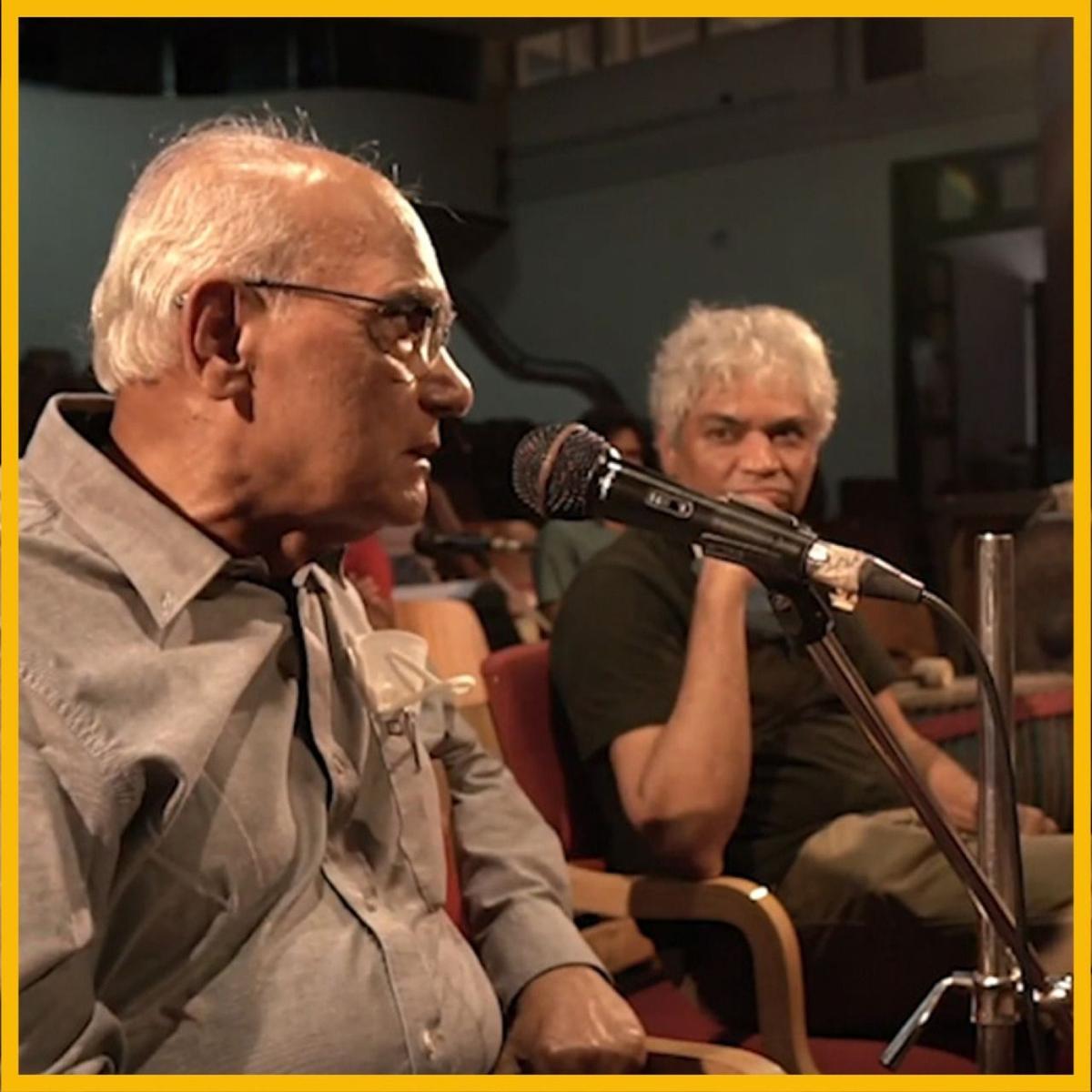
Prakash Belawadi with S.L. Bhyrappa.
| Photo Credit:
Special Arrangement
“Though Bhyrappa lived in Mysuru, Rangayana had never staged any of his works. Parva brought me in contact with the writer, whom I first met at his residence in 2020. He again asked me how I would adapt it to the stage and said, ‘Please don’t add your left or right leanings to it’. I replied, “Sir, Parva is your interpretation of the Mahabharata. I will not reinterpret it, but will be faithful to your version and pick what I can for an eight-hour play. I will write the script, you read it, then let me know if we can go ahead. He agreed, read the script, loved it and Parva came alive on the stage.”
Prakash shares the three major factors in Parva that hit him hard.“First, Bhyrappa did away with all the boons. Second, he also found a way to rationalise the miraculous births mentioned in the epic. Lastly, he humanised the characters, even calculating their age.” Besides these, what stood out for Prakash is the way Bhyrappa treats women in his writings. For instance, Kunti’s views about Pandu and his virility and he failing to fulfil her sensual desires.“It is the most outstanding aspect about the novel.”
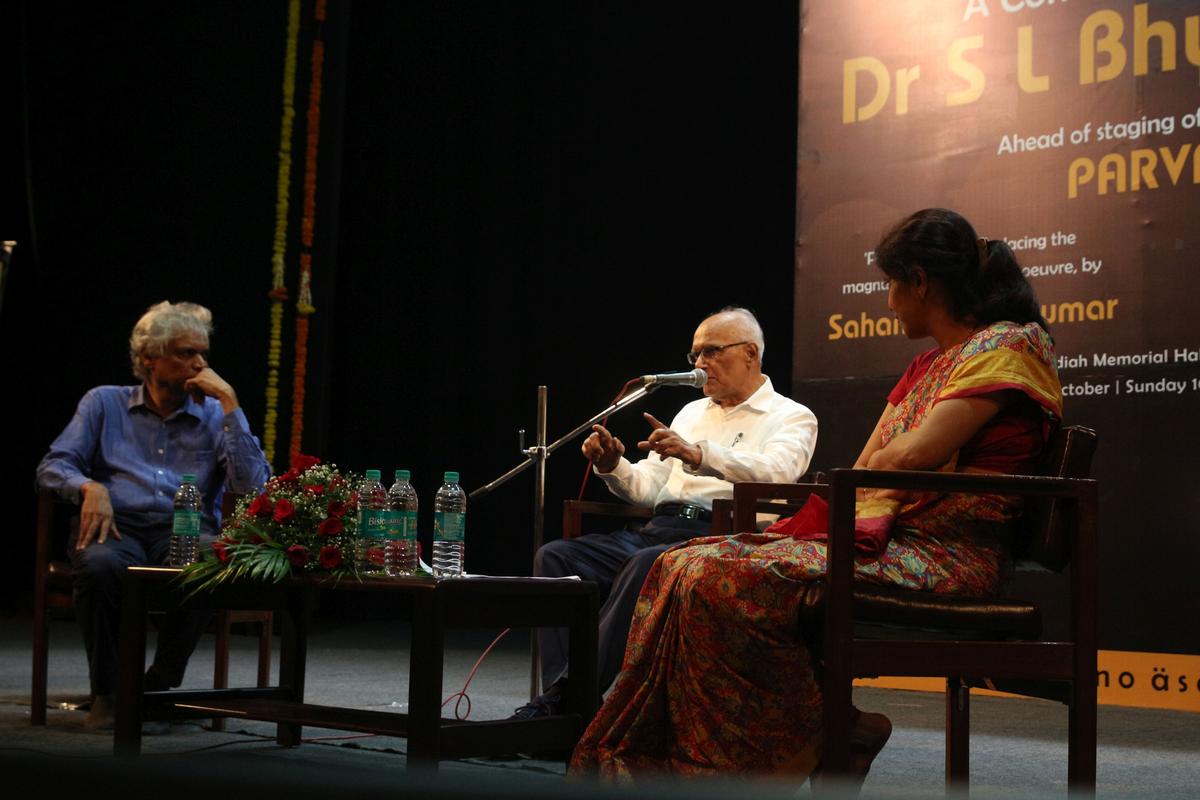
The director with Bhyrappa at a discussion before the staging of Parva
| Photo Credit:
Special Arrangement
Prakash points out how one cannot ignore the way Bhyrappa has built the subaltern characters, who are depicted as having utter contempt for the ruling class. He also questions the very idea of inheritance in Parva and raises it through Ekalavya.
A still from the award-winning, film Nayi Neralu, adapted by Bhyrappa’s novel of the same name and directed by Girish Kasaravalli.
| Photo Credit:
Special Arrangement
“It was only when I read his work, I asked myself why did I ever write so foolishly about him. By then, his son, Uday, told me that many people had called Bhyrappa and advised him not to give me the stage rights of Parva. Bhyrappa’s acceptance of me and my script came as a blessing. I felt I had crossed an important threshold in theatre. Because Parva changed my perspective of theatre,” says Prakash.
Memorable moment
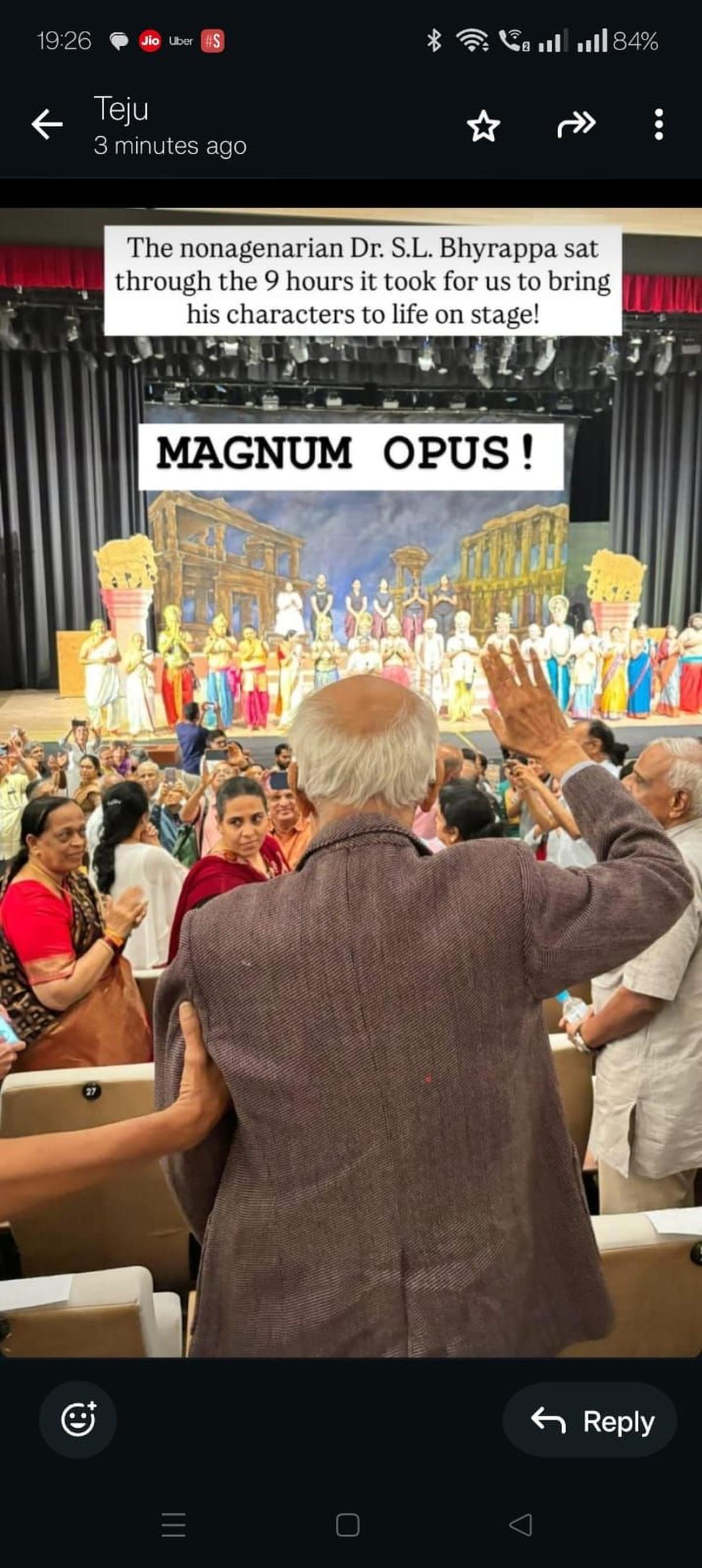
Bhyrappa, at his last show of Parva in Bengaluru
| Photo Credit:
Courtesy: Prakash Belwadi
Besides rehearsals, Bhyrappa had watched 12 shows of Parva. In Bengaluru, on May 19, 2025, “We cancelled a show on a Friday and had to reschedule it for a Monday. After the show, I asked how many had come on Friday and gone back. And Bhyrappa, from ‘J’ row, lifted his hand and a person behind him took that memorable picture. For me, it was the most humbling moment.
Parva on the big screen
Filmmaker Vivek Agnihotri has obtained the rights to make Parva into a film, of which Prakash will be a part. The duo had met the writer.

